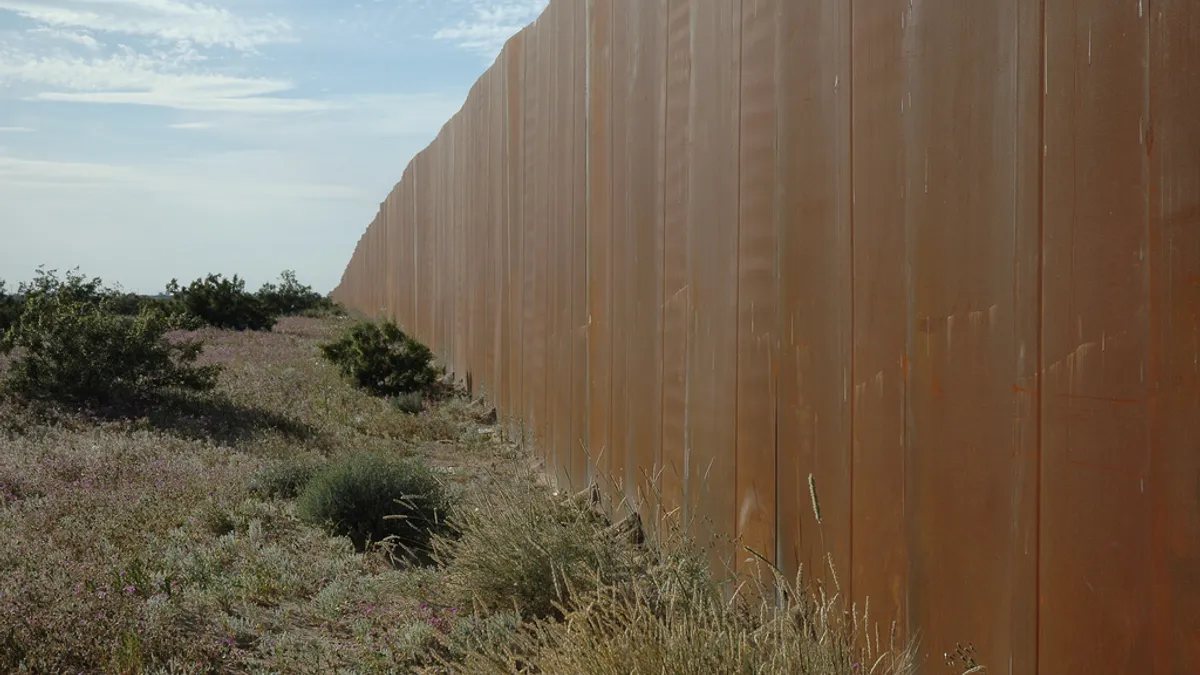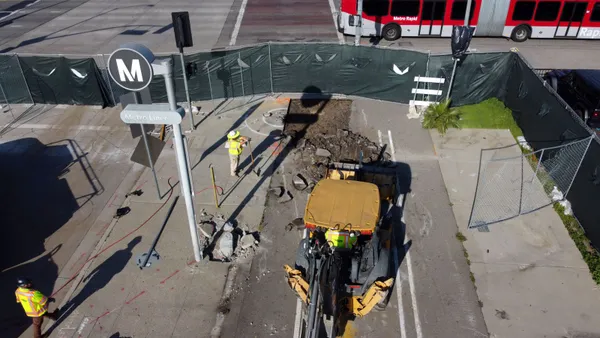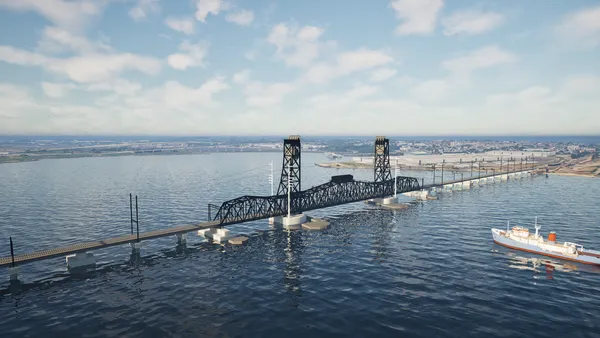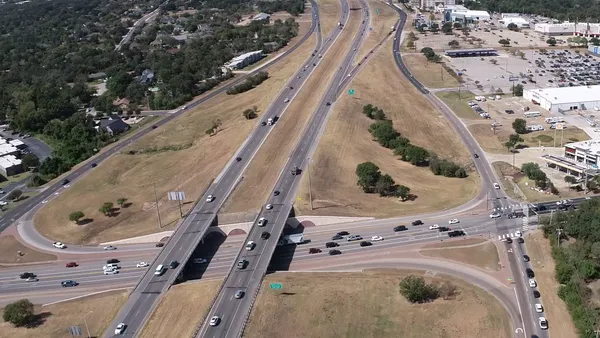Dive Brief:
-
The House Homeland Security Committee on Wednesday authorized the Border Security for America Act, which includes $10 billion for construction of a U.S.–Mexico border wall, according to The Hill.
-
The Republican-driven measure allocates funding to add 5,000 border patrol agents, $5 billion for port-of-entry improvements and $35 million to pay back states that have sent National Guard resources to assist with border security.
-
The bill is expected to win approval from the GOP-controlled House, but it will likely be unable to garner the 60 votes necessary to pass in the Senate.
Dive Insight:
The legislation is the first official proposal that comes close to meeting President Donald Trump's promise to build a border wall between the U.S. and Mexico. Even the administration's 2018 budget proposal requests only $1.6 billion for the wall construction — down from a $2.6 billion request for border security made in March.
Officials said the original budget allocation would get wall construction started and help fund the building of prototypes. However, the amount requested in the new bill falls well short of the $22 billion the Department of Homeland Security (DHS) said it would take to build the wall to its proposed specifications.
U.S. Customs and Border Protection (CBP) announced late last month that it had started construction on eight prototype sections, four made of concrete and four made of other materials. The agency is pushing forward with the prototypes despite a lawsuit filed on behalf of the state of California and the California Coastal Commission alleging that the federal government did not follow the appropriate environmental review procedures and used expired laws to issue exemptions to speed up construction.
DHS maintains it is exempt from compliance with regulations like the National Environmental Policy Act and Clean Water Act, although the administration has said it will safeguard the environment during wall construction. This issue has drawn particular concern from environmental activists in Texas as CBP said it would also start construction on a 3-mile section of the wall through the Santa Ana National Wildlife Refuge along the Rio Grande River.
While several contractors submitted bids to build wall prototypes, others publicly removed themselves from the process, likely for fear of fallout from aligning with such a divisive project and the possibility that it could interfere with their chances of winning other lucrative public projects. New York City and San Francisco officials discussed measures that would prohibit contractors that bid in on the wall from doing public work in their cities.














